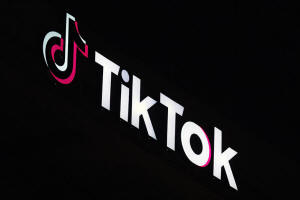TikTok's fate arrives at Supreme Court in collision of free speech and
national security
 Send a link to a friend
Send a link to a friend
 [January 10, 2025] By
MARK SHERMAN [January 10, 2025] By
MARK SHERMAN
WASHINGTON (AP) — In one of the most important cases of the social media
age, free speech and national security collide at the Supreme Court on
Friday in arguments over the fate of TikTok, a wildly popular digital
platform that roughly half the people in the United States use for
entertainment and information.
TikTok says it plans to shut down the social media site in the U.S. by
Jan. 19 unless the Supreme Court strikes down or otherwise delays the
effective date of a law aimed at forcing TikTok's sale by its Chinese
parent company.
Working on a tight deadline, the justices also have before them a plea
from President-elect Donald Trump, who has dropped his earlier support
for a ban, to give him and his new administration time to reach a
“political resolution” and avoid deciding the case. It's unclear if the
court will take the Republican president-elect's views — a highly
unusual attempt to influence a case — into account.
TikTok and China-based ByteDance, as well as content creators and users,
argue the law is a dramatic violation of the Constitution's free speech
guarantee.
“Rarely if ever has the court confronted a free-speech case that matters
to so many people,” lawyers for the users and content creators wrote.
Content creators are anxiously awaiting a decision that could upend
their livelihoods and are eyeing other platforms.

The case represents another example of the court being asked to rule
about a medium with which the justices have acknowledged they have
little familiarity or expertise, though they often weigh in on meaty
issues involving restrictions on speech.
The Biden administration, defending the law that President Joe Biden
signed in April after it was approved by wide bipartisan majorities in
Congress, contends that “no one can seriously dispute that (China's)
control of TikTok through ByteDance represents a grave threat to
national security.”
Officials say Chinese authorities can compel ByteDance to hand over
information on TikTok’s U.S. patrons or use the platform to spread or
suppress information.
But the government “concedes that it has no evidence China has ever
attempted to do so,” TikTok told the justices, adding that limits on
speech should not be sustained when they stem from fears that are
predicated on future risks.
In December, a panel of three appellate judges, two appointed by
Republicans and one by a Democrat, unanimously upheld the law and
rejected the First Amendment speech claims.
Adding to the tension, the court is hearing arguments just nine days
before the law is supposed to take effect and 10 days before a new
administration takes office.
[to top of second column] |

A TikTok sign is displayed on top of their building in Culver City,
Calif., on Dec. 3, 2024. (AP Photo/Richard Vogel, File)
 In language typically seen in a
campaign ad rather than a legal brief, lawyers for Trump have called
on the court to temporarily prevent the TikTok ban from going into
effect but refrain from a definitive resolution.
“President Trump alone possesses the consummate dealmaking
expertise, the electoral mandate, and the political will to
negotiate a resolution to save the platform while addressing the
national security concerns expressed by the Government — concerns
which President Trump himself has acknowledged,” D. John Sauer,
Trump’s choice to be his administration’s top Supreme Court lawyer,
wrote in a legal brief filed with the court.
Trump took no position on the underlying merits of the case, Sauer
wrote. Trump's campaign team used TikTok to connect with younger
voters, especially male voters, and Trump met with TikTok CEO Shou
Zi Chew at Trump’s Mar-a-Lago club in Palm Beach, Florida, in
December. He has 14.7 million followers on TikTok.
The justices have set aside two hours for arguments, and the session
likely will extend well beyond that. Three highly experienced
Supreme Court lawyers will be making arguments. Solicitor General
Elizabeth Prelogar will present the Biden administration's defense
of the law, while Trump’s solicitor general in his first
administration, Noel Francisco, will argue on behalf of TikTok and
ByteDance. Stanford Law professor Jeffrey Fisher, representing
content creators and users, will be making his 50th high court
argument.
If the law takes effect, Trump's Justice Department will be charged
with enforcing it. Lawyers for TikTok and ByteDance have argued that
the new administration could seek to mitigate the law’s most severe
consequences.
But they also said that a shutdown of just a month would cause
TikTok to lose about one-third of its daily users in the U.S. and
significant advertising revenue.
As it weighs the case, the court will have to decide what level of
review it applies to the law. Under the most searching review,
strict scrutiny, laws almost always fail. But two judges on the
appellate court that upheld the law said it would be the rare
exception that could withstand strict scrutiny.
TikTok, the app's users and many briefs supporting them urge the
court to apply strict scrutiny to strike down the law.
But the Democratic administration and some of its supporters cite
restrictions on foreign ownership of radio stations and other
sectors of the economy to justify the effort to counter Chinese
influence in the TikTok ban.
A decision could come within days.
All contents © copyright 2024 Associated Press. All rights reserved |